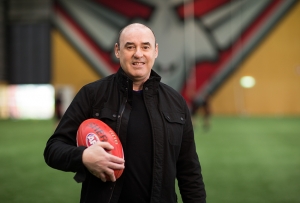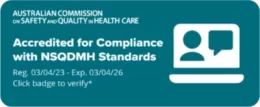Accessibility Tools
- Content scaling 100%
- Font size 100%
- Line height 100%
- Letter spacing 100%
Displaying items by tag: depression
Tilly: my mental health toolbox
I am not bipolar. I have bipolar disorder. My diagnosis and my identity are linked only in so far as experiencing mental illness has contributed to my personal growth.
My perspectives have broadened, my empathy has grown and I have consolidated certain personal attributes such as resilience and confidence. I have also gradually created a toolbox — one that is instrumental to maintaining my mental health.
I wish the process had have been easier and quicker. But, at the end of the day all that matters is I now have it as I move forward with life.
 My mental illness at times caused much distress. Since my first episode of illness, a gradual process of receiving professional help, reaching out for support around me, improving my own understanding and self-awareness, and developing a tool kit of self care and coping strategies has allowed me to evolve from struggle to recovery and ongoing management
My mental illness at times caused much distress. Since my first episode of illness, a gradual process of receiving professional help, reaching out for support around me, improving my own understanding and self-awareness, and developing a tool kit of self care and coping strategies has allowed me to evolve from struggle to recovery and ongoing management
I am able to live, enjoy and adventure in spite of having a complex mental illness.
My handle on my condition is strong. I experience warning signs of mania, including restlessness, erratic or racing thoughts, difficulty sleeping and urges to complete unnecessary tasks. Recently I reflected that, although I can identify them (an important step which itself took time to achieve), I was struggling to deal with them in the moment.
I decided to contact a psychologist for guidance around developing coping strategies and ways to approach calming these symptoms better. My GP set up the referral, commending my proactive choice to seek support even though my illness has little current impact on my day-to-day life.
I have learnt the hard way that reaching out for support early is crucial in staying on top of mental illness. A culture of help-seeking is vital for staying well.
When I was 17, my condition surfaced for the first time. I experienced depression for several months. Among my negative thoughts was guilt — a feeling that I had no reason to be depressed and it was silly to feel this way. Consequently, I was too ashamed to tell anyone.
I had a friend who noticed I was withdrawn and quiet, which was unlike my positive, bubbly self. She asked me if everything was ok and said they were there if I needed to talk. That showed me that people did want to help. Though I chose not to open up, being approached was comforting.
 However, I struggled in silence instead of reaching out for help, and things went from bad to worse. I fell into a period of prolonged mania and this meant my behaviour changed in a way which was, at first, not overtly noticeable to those around me.
However, I struggled in silence instead of reaching out for help, and things went from bad to worse. I fell into a period of prolonged mania and this meant my behaviour changed in a way which was, at first, not overtly noticeable to those around me.
Suddenly things rapidly became more acute as I transitioned into a psychotic episode. I had severe emotional distress, exacerbated from experiencing visual hallucinations and my ability to function at school and home derailed. I was taken to the doctor, and subsequently hospital emergency on my GPs directive. From the psychiatric evaluations, I was admitted to hospital to begin my recovery.
My illness had become so bad others needed to intervene. I often wonder what disruption and distress to me, my family and others around me could have been avoided if I had have sought help when I was struggling with depression, or if I had understood the changes in my behaviour as concerning and spoken up.
The exposure to professional help began my road to recovery. Initially I lacked awareness of my mental health and the necessary tools of to manage my illness.
My mood was returned to a range which enabled me to function at home and socially, and to finish year 12 with a positive prognosis. I was transferred to a community team consisting of a psychiatrist and a counsellor for ongoing care. I started university and enjoyed beginning a new phase of my life.
I was taking medication that was being progressively lowered, but I was struggling to cope with warning signs as my mental illness again reared its head.
I experienced a relapse, but this was a constructive turning point in how I would handle my condition. It represented certainty and I learned of the permanency of my diagnosis. I became motivated to learn about bipolar, my own signs and symptoms and the coping strategies and self-care techniques I could use.
This nuanced understanding of myself, my illness and what tools worked for me have helped me manage my condition and live my life with bipolar having minimal impact.
I still see my psychiatrist routinely, though this is now infrequent, and I seek the support of those around me when I need it.
I have learnt to say no, to prioritise time to rest my body and mind, to implement a strong sense of routine and scheduling, and to ensure I sleep adequately. I have activities I know help me to relax, energise or burn off steam, and I know when I need to use these to change my current behaviour.
It took time to establish what methods worked for me. Combining these methods with new thought-based strategies that I am developing with my psychologist has, for now, completed my tool kit for managing my mental illness.
It may be in future that other things arise, and new instruments for coping may be added, or others taken away. I have established professional medical support, a help-seeking culture, medication regime, self-care and behavioural coping strategies which together ensure I stay at my optimal mental health as much as possible.
It was by no means an easy path, but it was an important one, for me and those around me. Now I have created my toolbox, I can take it anywhere, to use as needed to keep my condition in check in order to continue getting on with my life.
'Be kind to your mind' is an initiative of SANE supported by Future Generation Global, in partnership with batyr.
Mark
1983 sticks out to me. I did a really bad pre-season. I was down, I couldn’t train properly. I felt like I had a really bad flu. That was the start of my mental health problems, but it was decades until I was diagnosed with depression and bipolar disorder.
I got recruited from the under 15s at Strathmore to play for the Essendon under 19s. When I was 17, I played my first game in the Essendon Seniors. I ended up at the Swans and in ‘89 I had one of my best years. I think I came third in the best and fairest.
Then things went downhill again in ‘91. I’d sit in the toilets before our warm up and I’d cry. Then I’d have to go and play a game, which was not only physically demanding, it was mentally exhausting. Mum was driving me to the airport after a game in Melbourne and I burst into tears. I said, “Mum, I can’t do this anymore. I’ve got to stop. I can’t take it.”
I was 28 at the time and there was no real understanding of mental health issues back then. It’s only in the last few years that organisations like SANE have really stood up and raised awareness. And with the AFL, it’s only really come about now with publicity around people like Buddy Franklin and Chris Yarran that the public and clubs are more aware. But there was just nothing like that.
Without footy, I had no discipline – to go to training, to stay off the grog, to keep fit. All that went out the window. I’d start going out on Friday nights and taking cocaine, and it got to a stage where I was basically doing coke every day. You lose everything – all your discipline, friends, money. I was so far gone, I was just leaving a path of destruction behind me.
Through a mate, I was offered a place in rehab. I didn’t have any medical insurance, so friends rallied around and raised the money. The day I was leaving, I had my bag and footy under my arm and opened the gate. There were about 50 people waiting and they all turned and looked at me. It hit me at once what I’d done to myself. It all hit me. And I decided to fight it.
I got diagnosed with bipolar disorder and depression when I was about 43. Since 18, people had been telling me to stop feeling sorry for myself, to stop being a sook. At 43 I finally found out what was wrong with me.
In late 2014 I decided to go to the Essendon past players Christmas barbeque. That year, Simon Madden was hosting it. He said, 'Mate, I don’t know how to talk to you, because I just don’t know what you’ve been through. What about we catch up for a coffee?'
That was a major step for me, to sit in a coffee shop with one of my old friends. I had distanced myself from friends and family for so long. And now to have someone to talk to on a daily basis − that’s been pretty important to me.
It’s such a big issue, the mental health issue. So many people suffer, and so many people just hide it. I can’t emphasise this enough – you have to talk to someone, you have to go and get help.
It will steer you in the right direction to make the right decisions in life, so you can go on and lead a normal and happy life.
I’m a living example that with help and support you can come out the other side.
Antidepressant medication
Quick facts
- Antidepressant medication can help ease symptoms of depression, anxiety, and other mental health conditions
- They affect brain chemicals called neurotransmitters.
- There are different types of antidepressants, and types such as SSRIs and SNRIs are commonly prescribed.
- Antidepressants don’t work for everyone, but for some people they are very helpful
- It is important to talk to a doctor about different options, side effects, and how to use medication effectively.
-
About antidepressants
Antidepressant medication refers to a few types of medication that can help relieve symptoms of low mood and anxiety. These medications balance your brain chemistry – by affecting neurotransmitters that influence mood and emotions.
Antidepressant medication is often used to treat depression in combination with psychological therapies, but can also be used as part of treatment for other mental health conditions.
-
When are antidepressants used?
Antidepressants are often used to reduce the symptoms of depression, such as:
- feeling extremely sad for no clear reason,
- loss of interest or pleasure in things you usually enjoy;
- sleeping too much or too little
- feelings of worthlessness, guilt or worry, and
- difficulty in thinking, making decisions or concentrating.
Antidepressants may also be helpful in the treatment of other mental health issues, such as generalised anxiety disorder and eating disorders, obsessive-compulsive disorder, social phobia, chronic pain, and post-traumatic stress disorder.
They may be prescribed when:
- you have tried psychological treatments and not found them helpful so far
- symptoms are severe, distressing, or impacting a lot on daily life
- you cannot access psychological treatments currently.
You might use antidepressants on their own (that is, as your only form of treatment). Or medications can also be used while trying other options, like self-help, psychological therapies or support in the community, and lifestyle changes like improving sleep and exercise. For example, people with moderate to severe symptoms of depression are usually recommended a combination of medication and psychological therapies1.
Antidepressants are not for everyone, but for some people, they can be life-changing. There is nothing wrong with wanting to try medication, or needing medication, to improve your mental health.
-
Types of antidepressant medication
There are several types of antidepressant medication available such as:
- an older group, known as tricyclic antidepressants and monoamine oxidase inhibitors (MAOIs)
- newer groups, known as selective serotonin reuptake inhibitors (SSRIs) and serotonin and norepinephrine reuptake inhibitors (SNRIs), which affect the amount of certain neurotransmitters in the brain.
- Atypical antidepressants, which operate in a different way to most other antidepressants.
Newer groups of antidepressants tend to have fewer side-effects and are safer when a wrong dose is taken. They are prescribed more often than the older types.
-
Are antidepressants effective?
They are effective – but not for everyone.
A large study reviewed and summarised hundreds of studies of antidepressants compared to placebos. The researchers found that overall, compared to placebos, antidepressants reduce symptoms of depression2. Another study found that antidepressants can also improve quality of life3.
However, not everyone will respond to antidepressants in the same way. This means that it can be difficult to predict how well they might work for you. Some people find them very helpful, whereas for other people, they might not help or only have a small effect. Some people respond well to some types of antidepressants but not others4. Researchers estimate an average 30% of people who take antidepressants experience symptom reduction, and up to 50% for some types of antidepressants5.
Antidepressants are generally most effective for people who experience more moderate to severe symptoms of depression. Some researchers report that 40-60% of people who experience moderate to severe depressive symptoms will experience some improvement after using antidepressants6.
-
What treatment with antidepressant medication involves
Initial consultation and prescription
Antidepressant medication may be prescribed by a doctor (a GP or a psychiatrist). A doctor can discuss options with you, and prescribe you a type of medication and dosage that they think would be appropriate for you.
It is okay to ask questions about things you are not sure about, and to express any concerns you have. There are some things you and your doctor can talk over to help decide what is right for you:
- How severe your symptoms are and how they impact you
- What different types of medication are available
- What they recommend, and why
- Any side-effects and how to manage these
- What to do if you wish to stop taking the medication
- Any allergies or physical health problems you may have
- If you are pregnant or planning to become pregnant
- Any other medications you are taking, or have taken previously
- How and when to take the medication
- How to store medication safely
- Other factors, such as foods which may need to be avoided.
Taking the medication
People who take medication as recommended by their doctor are more likely to feel better than those who take too little or too much. So make sure that you follow the directions on the pack to get the best benefit from your medication. Finding the right medication for you may involve trying one or more types of medication, or adjusting the dose.
It can take several weeks, or even a few months, after the first dose of medication before it has an effect1. It is a good idea to check in with your doctor over time to discuss how you are feeling, and if you have any concerns.
Coming off the medication
Sometimes, people want to stop taking medication. You might find that the medication isn’t working for you, or the side effects are unpleasant.
Sometimes the medication does work, and you feel better. In that case, it can be tempting to stop taking it. Like people with diabetes or high blood-pressure, some people with depression and anxiety-related disorders need to take medication on an ongoing basis to ensure the depression or anxiety doesn’t return. However, others find that with ongoing psychological support or having learned new ways of coping with situations, they no longer need to take antidepressants regularly.
Before stopping or reducing any medication it is important to discuss your reasons with your doctor. They can advise on the best ways to reduce the dose safely. Stopping antidepressant medication suddenly can cause you to feel withdrawal symptoms, like feeling dizzy, agitated and uncomfortable, electric shock sensations, or low or anxious moods1. So this needs to be done step-by-step with your doctor. -
Risks and side effects of antidepressant medication
As with any type of medication, some people may experience side effects. Many of these settle down after a few weeks, when your body has adapted to the medication, while others may persist. Make sure you discuss any side-effects with your doctor.
Some examples of side effects are:
- Diarrhoea or constipation
- Nausea
- Headaches
- Sleep disturbance
- Lower sexual responsiveness
- Dizziness or blurred vision
- Weight changes
- Dry mouth
Some people unfortunately experience an increase in depression symptoms after starting an antidepressant medication. If you start to experience suicidal thoughts, or a worsening of mood and anxiety, it is important to take to your doctor as soon as possible.
A doctor can suggest changes to minimise side-effects, such as changing your dosage, the time of day you take it, or the type of medication itself.
-
Finding out more
To learn more, a GP or psychiatrist can provide a personalised discussion about whether antidepressants are the right option for you.
-
Resources
- 1300 MEDICINE (1300 633 424) – Medicines Line
- Depression (SANE Fact Sheet)
- Antidepressant medications explained - NPS Medicine Wise
- Forums Community chats depression – SANE Forums
-
References
1. NICE. NICE Guideline for depression in adults: treatment and management [Internet]. 2022 [cited 2023 Mar 30]. Available from: https://www.nice.org.uk/guidance/ng222/chapter/recommendations
2. Cipriani A, Furukawa TA, Salanti G, Chaimani A, Atkinson LZ, Ogawa Y, et al. Comparative efficacy and acceptability of 21 antidepressant drugs for the acute treatment of adults with major depressive disorder: a systematic review and network meta-analysis. Focus (Madison). 2018;16(4):420–9.
3. Wiesinger T, Kremer S, Bschor T, Baethge C. Antidepressants and Quality of Life in Patients with Major Depressive Disorder–Systematic Review and Meta‐analysis of Double‐blind, Placebo‐controlled RCTs. Acta Psychiatr Scand. 2023;
4. Maslej MM, Furukawa TA, Cipriani A, Andrews PW, Mulsant BH. Individual differences in response to antidepressants: A meta-analysis of placebo-controlled randomized clinical trials. JAMA Psychiatry [Internet]. 2020 Jun 1;77(6):607–17. Available from: https://doi.org/10.1001/jamapsychiatry.2019.4815
5. Alemi F, Min H, Yousefi M, Becker LK, Hane CA, Nori VS, et al. Effectiveness of common antidepressants: a post market release study. EClinicalMedicine. 2021;41:101171.
6. Institute for Quality and Efficiency in Health Care. Depression: How effective are antidepressants. In 2015 [cited 2023 Mar 30]. Available from: https://www.ncbi.nlm.nih.gov/books/NBK361016/
Mental health issues in younger people
Quick facts
Like all of us, teenagers can feel a bit down sometimes. Everyday frustrations, disappointments, problems at school or family troubles can cause this feeling. If the sadness or worry go on for more than two weeks and start to affect their daily life, though, this may be a symptom of a mental illness which needs medical assessment and treatment.
- Around four in every hundred young people experience depression or an anxiety disorder at some time.
- Globally, mental disorders are the single most common cause of disability in young people.
- More than 70% of mental illnesses will emerge for the first time by the age of 25 years.
- The chances of developing some mental illnesses are higher if there is a history of it in the family.
‘I think back to how things might have been different, to how a strong connection could have made a difference. If someone had noticed my anxiety and withdrawal when I was 10 or 11, my anorexia and depression might never have escalated like they did.’
Rachael
-
The importance of getting help
Symptoms of mental illness may go unrecognised by others, especially during the teenage years. Untreated depression or anxiety can go on to affect adult life, can result in long-term social and emotional problems, alienation from family and friends, and may lead to more serious depression.
If symptoms are detected early, and help is sought, there is a very good chance that the symptoms can be reduced and overcome. Psychological therapy and medication are the main forms of treatment. Encouraging someone to talk openly about the thoughts and feelings that go with mental illness are an important first step towards overcoming the problem.
Related: The first steps -
What to look out for
These changes may indicate that someone is developing a mental illness. The person may:
- be unusually sad or worried for more than two weeks.
- lose interest in doing things, especially activities they usually enjoy.
- change their sleeping patterns; be constantly tired, lack energy, or have troubled sleep or insomnia.
- withdraw from their social life; spend less time with friends and family.
- become over-sensitive to criticism or authority.
- have a change in appetite; start to eat very little, or eat much more than previously; lose weight; vomit frequently.
- experience frequent health complaints such as head or stomach aches, general aches and pains.
- become persistently irritable.
- have trouble concentrating or making simple decisions.
- think they are worthless and have low self-esteem.
- make comments about suicide, talk about feeling hopeless, or say life is not worth living.
- become so anxious they have difficulty breathing, start to sweat or choke, or feel faint and shaky.
- blame themselves unreasonably for things not going right.
- behave aggressively and provoke fights.
- abuse drugs or alcohol.
It is important to understand that these are symptoms and that they are treatable. A school counsellor, youth worker or close friend may be able to help in encouraging the person to see a doctor.
-
Common concerns for young people
Drug use
Concerned family members and others often believe that drug use is causing the erratic or withdrawn behaviour. Sometimes this may be true. Drug and substance abuse among young people is common. Many use drugs with friends for recreation. Some, however, use them as a way of dealing with the distressing symptoms of mental illness.
Try to talk to the young person about it when they seem willing to open up. It is important to find out if the drug use points to a serious problem, and this is not easy to assess. Remember, if you are concerned, talk to a doctor about getting specialised help.
Related: Supporting someone with substance abuseEating disorders
Feelings of worthlessness experienced by a mentally ill person can sometimes affect how they view their bodies. This may lead to a change in eating habits, such as extreme dieting, bingeing and purging. Such behaviour can result in an eating disorder such as Anorexia nervosa or Bulimia. Eating disorders are more common among girls, but boys can also be affected.
People with an eating disorder are usually secretive about it, so the condition may be hard to detect. Anorexia nervosa usually involves continued strict dieting even when weight has dropped below the normal healthy range. Bulimia can be more difficult to recognise as there may not be a significant change in body weight. If you are concerned that someone you know may have an eating disorder, it is essential to seek professional help as soon as possible. Eating disorders can be overcome with treatment and support; left untreated they may be life-threatening.
Related: Finding hope when fighting an eating disorderSuicide
Depression can often lead to feelings of great despair and distress. These feelings can be so profound that they lead to thoughts of suicide. This does not necessarily mean that the person will act on these thoughts – it is important, however, that any talk of suicide is taken very seriously, and help should be sought immediately.
It is especially important to seek help if the young person:- talks about about feeling worthless or hopeless, and has very low self-esteem
- is experiencing regular panic attacks
- is giving away their personal possessions
- has delusions or hallucinations
- does dangerous, life-threatening things
- has made previous suicide attempts.
Related: How to help when someone is suicidal, Self-care after someone discloses suicidal thoughts
-
Seeking help
Someone who is experiencing symptoms of mental illness may find it difficult to talk about what they are experiencing. They might feel very sensitive, that they are being criticised, or frightened about what is happening. This may result in a rebellious response, or they may deny that there is a problem.
It is important to reassure and support the young person. Let them know that you want to help and that you are willing to listen. Reassure them that, with treatment and support, a lot can be done to help how they feel.- Talk to the person when they seem willing to discuss things with you. Choose a time when they are more likely to be relaxed and open up.
- Make contact with a school counsellor or youth worker who may also be able to help.
- Encourage the person to consider the doctor as someone who can help, who will be confidential, and will not judge them.
- Suggest that you or another trusted friend come along as support when visiting the doctor.
- Discuss the situation with the doctor yourself, to ensure any relevant information is known. It is always helpful to write down your concerns and bring them with you. If the doctor does not seem to understand, or the young person is not comfortable with them, look for another.
Related: Treatments for mental illness
Depression
Quick facts
- Depression affects thinking and emotions, causing low mood and a loss of pleasure in usual activities.
- Major depressive disorder, persistent depressive disorder, and perinatal depression are all types of depressive disorders.
- People living with depression can benefit from self-care strategies, psychological therapies, and community support.
- It is possible to live a full and meaningful life even if a person experiences depression.
-
About depression
Everyone experiences low mood or sadness at times – it’s part of being human. But depression is more than just sadness. It is a mental health condition that significantly affects the way someone thinks and feels. It causes ongoing low mood, and/or a loss of pleasure or interest in things that someone would usually enjoy.
Depression often involves a range of other physical and psychological symptoms that can interfere with day-to-day life. It’s also common for people living with depression to have other mental and physical health issues, such as: anxiety disorders, substance use disorders, personality disorders, and chronic pain.
-
Symptoms of depression
Symptoms of depression can occur at any age. A person with depression will often feel low even if there is no obvious cause.
When people say ‘depression’ they are often referring to major depressive disorder. This involves a variety of symptoms and affects everyone in different ways. For example, symptoms can vary in severity; and some people only ever experience one episode, while for others they occur multiple times.
To receive a diagnosis of major depressive disorder, a person needs to experience five of the following symptoms over a period of at least two weeks1:
- Feeling extremely sad, empty, hopeless, or tearful.
- Losing interest or pleasure in activities.
- Significant weight changes, or changes to appetite.
- Difficulty falling or staying asleep (insomnia), or oversleeping (hypersomnia).
- Feeling physically agitated or jittery, or slowed down.
- Fatigue, or loss of energy.
- Negative thinking, such as feeling worthless or guilty.
- Difficulty concentrating or making decisions.
- Thoughts of death or suicide, planning or attempting suicide.
If you, or someone you know, are concerned about suicide and need to talk to someone right now, please call Lifeline on 13 11 14 or Suicide Call Back Service on 1300 659 467. If life is in danger and you need help immediately, please call triple zero (000).
Some people with depression also have physical symptoms such as headaches or digestive problems, or a lack of sex drive. People can also experience symptoms of psychosis during a depressive episode.
There are other types of depressive disorders too1. These include:
- Persistent depressive disorder: depressed mood for at least two years. This may also involve appetite changes, sleep difficulties, low energy, low self-esteem, poor concentration, or feelings of hopelessness.
- Premenstrual dysphoric disorder (PDD): around the time of menstruation, distressing mood changes (such as mood swings, feeling sad or tearful, angry, or anxious) and physical symptoms such as pain, tenderness, or bloating. Other symptoms include loss of interest in usual activities, trouble concentrating, sleep difficulties, and appetite changes. These symptoms differ from more normal premenstrual syndrome (PMS) in that they are severe enough to impact wellbeing or ability to manage usual daily activities.
- Substance/medication-induced depressive disorder: depressed mood or loss of pleasure that happens as a result of the use or withdrawal from a medication, alcohol or drugs.
- Seasonal affective disorder (SAD): a pattern of depression at specific times of year, such as during winter.
-
Causes of depression
Depression is thought to be caused by a combination of factors. These include genetic factors, brain chemistry, personality traits, thinking patterns and traumatic experiences 2-4.
Depressive episodes can also:
- be a reaction to a distressing situation like loss or stress
- be experienced during pregnancy or following the birth of a child (perinatal depression)
- occur as part of other mental health issues, like bipolar disorder
- sometimes occur without any obvious triggering event.
-
How common is depression?
Depression is one of the most common mental health issues. Around 7.5% of Australian adults experience depressive disorders each year5.
Depression is more common in women than men, and higher rates occur in people with disabilities or long term health conditions6.
-
Managing life with depression
There are strategies that can help people manage the symptoms of depression:
- Understanding more about depression, why it has come up and what makes it better or worse.
- Learning strategies to manage unhelpful thoughts.
- Creating a routine and scheduling in activities that previously have given a sense of pleasure or achievement.
- Relaxation and breathing training.
- Mindfulness.
- Looking after your physical health through healthy eating, exercise and sleeping well.
- Developing a safety plan and other strategies to manage suicidal thoughts.
-
Treatment and support for depression
Treatment can help manage, reduce, or even eliminate the symptoms of depressive disorders.
It’s a good idea to first talk to a GP. A GP can provide information and refer on to other health professionals or support services. They can also explore if there are any health conditions contributing to symptoms.
Treatment often involves working with a mental health professional such as a psychologist, counsellor, or psychiatrist. Community based supports that help with study, employment or social connection can also be beneficial.
Treatment can have a range of goals. Some people might want to understand what causes or contributes to depression and its patterns. Others might learn how to manage physical symptoms of depression and reduce negative thinking.
There are several types of psychological therapies that can help manage depression, such as 7,8:
- Cognitive behavioural therapy (CBT)
- Interpersonal therapy
- Behavioural activation
- Mindfulness-based cognitive therapy
- Psychodynamic therapy
- Acceptance and commitment therapy (ACT)
For people with more moderate to severe symptoms, or with more persistent symptoms, sometimes treatment may be longer-term. Antidepressant medication may be recommended to manage symptoms, usually alongside psychological treatments7.
Treatments such as electroconvulsive therapy (ECT) or repetitive transcranial magnetic stimulation (rTMS) can also be helpful7,9. Some people with a seasonal pattern of depression benefit from light therapy7.
-
Help for family & friends
The family and friends of someone experiencing depression need care and support too — it’s okay for family and friends to set boundaries, and to prioritise their own physical and mental health.
There are many other people out there who share similar experience, and many services designed to help carers of people with mental health issues. Check out our Guide for Families and Friends for more info.
Effective support is available, and a person who is experiencing depression can live a fulfilling life.
To connect with others who get it, visit our online Forums. They’re safe, anonymous and available 24/7.
-
Resources
- Depression self-assessment (Black Dog Institute)
- Self-help resources: Centre for Clinical Interventions workbook and online course from This Way Up
- My lightbulb moment – real story of living with depression
- For support with managing suicidal thoughts, contact Suicide Call Back Service – 1300 659 467 or Lifeline – 13 11 14
- Statistics on prevalence of depression: https://www.abs.gov.au/statistics/health/mental-health/national-survey-mental-health-and-wellbeing-summary-results/2007
-
References
1. American Psychiatric Association. Diagnostic and statistical manual of mental disorders (5th ed.; DSM-5). In: 5th ed. American Psychiatric Association; 2013.
2. Howard DM, Adams MJ, Clarke TK, Hafferty JD, Gibson J, Shirali M, et al. Genome-wide meta-analysis of depression identifies 102 independent variants and highlights the importance of the prefrontal brain regions. Nat Neurosci. 2019/02/04. 2019 Mar;22(3):343–52.
3. Mandelli L, Petrelli C, Serretti A. The role of specific early trauma in adult depression: A meta-analysis of published literature. Childhood trauma and adult depression. European Psychiatry. 2015/06/13. 2015;30(6):665–80.
4. Hakulinen C, Elovainio M, Pulkki-Råback L, Virtanen M, Kivimäki M, Jokela M. Personality and depressive symptoms: individual participant meta-analysis of 10 cohort studies. Depress Anxiety. 2015 Jul 1;32(7):461–70.
5. Australian Bureau of Statistics. National Study of Mental Health and Wellbeing 2020-2021 [Internet]. 2022 [cited 2022 Aug 4]. Available from: https://www.abs.gov.au/statistics/health/mental-health/national-study-mental-health-and-wellbeing/2020-21#prevalence-of-mental-disorders
6. Australian Bureau of Statistics. Mental health [Internet]. 2017-2018 Financial Year. 2018 [cited 2022 Feb 3]. Available from: https://www.abs.gov.au/statistics/health/mental-health/mental-health/latest-release
7. National Institute for Health and Care Excellence. Depression in adults: recognision and management. 2009.
8. Twohig MP, Levin ME. Acceptance and Commitment Therapy as a Treatment for Anxiety and Depression: A Review. Psychiatric Clinics of North America. 2017;40(4):751–70.
9. George MS, Taylor JJ, Short EB. The expanding evidence base for rTMS treatment of depression. Curr Opin Psychiatry. 2013;26(1):13.










